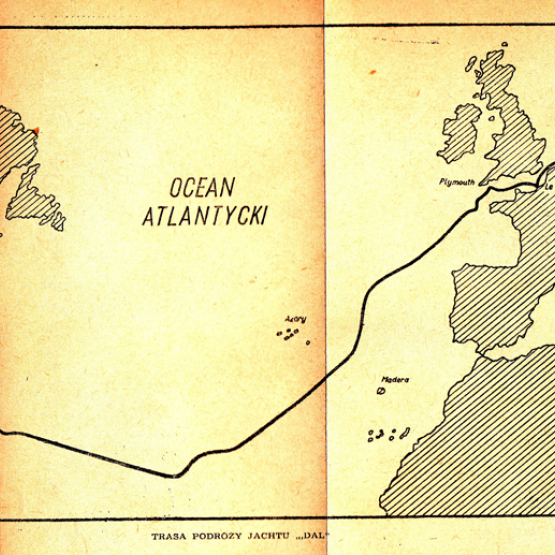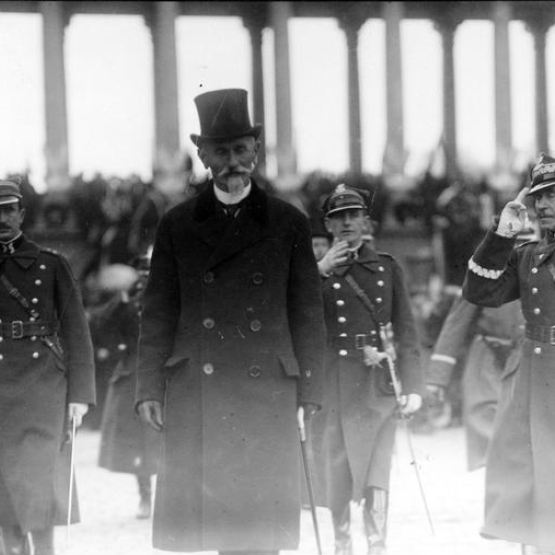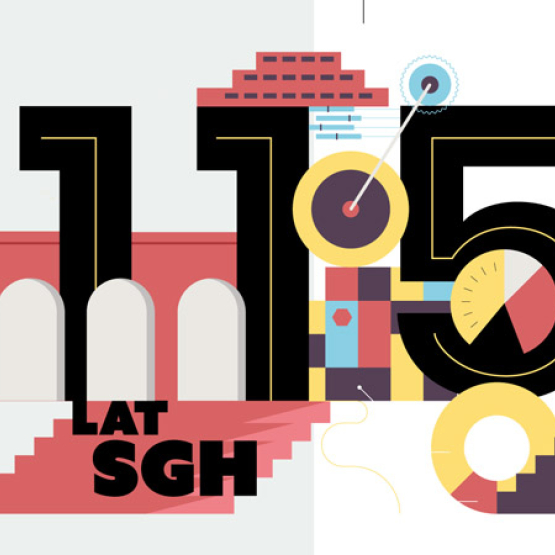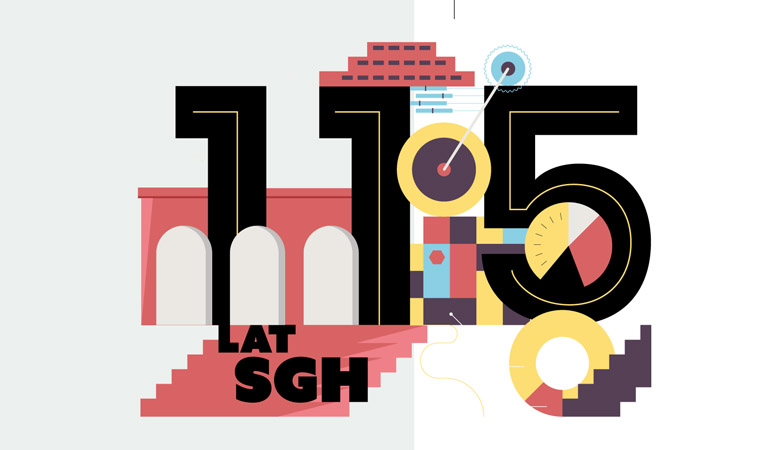
Part IV. SGH Warsaw School of Economics as a university for the 21st century
The 1990s is the beginning not only of great economic transformations in Poland but also of changes in the organisation of our university and in the way it functions. The Act of 5 April 1991 changed the name of Warsaw Main School of Planning and Statistics (SGPiS) and it reverted to the name of SGH Warsaw School of Economics. It was a clear sign of embarking on a new path of development and adapting a new school strategy.
As early as February 1991, the Senate passed a resolution to divide the studies into Basic Studies and Graduate Studies, and to introduce a general individualised curriculum programme. The Basic Studies were launched in the academic year of 1991/1992, and the Graduate Studies in 1992/1993. Since October 1991, it was possible to pursue tuition-based extramural studies. Reform from the early 1990s abolished faculties and research was confined to collegia. On 12 February 1993, the previous faculties ceased to exist and the following research collegia were established: Economic Analysis, Socio-Economics, World Economy, Business Administration, and Management and Finance. Within their structures, departments and institutes were formed. Young people were given the opportunity to pursue the following fields of study: Economics, Finance and Banking, Public Economy, Quantitative Methods and IT Systems, International Business and Political Relations, as well as Management and Marketing. Students were recruited on a university-wide basis and the initial three semesters (Basic Studies) were common for all the students who had the right to choose the lecturers for their respective subjects. During the semesters from 4 to 10 (Graduate Studies), students had a lot of freedom to choose the subjects offered. There was an option to graduate from the university with a bachelor’s or master’s degree. Poland’s EU accession involved the implementation of the Bologna Process. On 18 January 2006, SGH Senate adopted the master’s/bachelor’s studies division. Doctoral studies were found in the third cycle of studies. From now on, education was to be provided on a full-time and part-time basis. Postgraduate studies were also extensively developed.
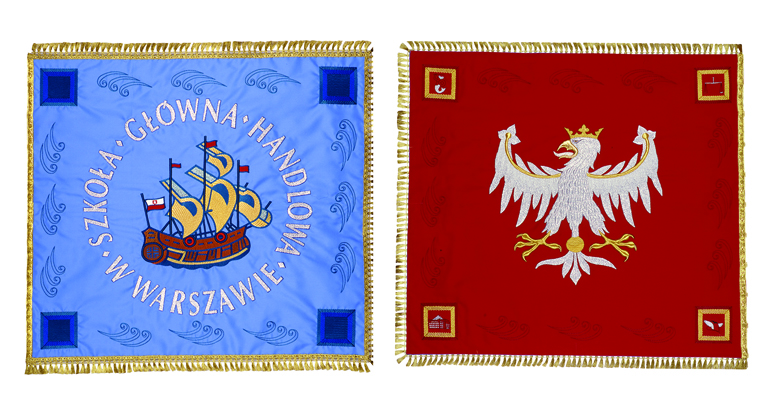
The Banner of SGH Warsaw School of Economics (front and back). A photo from SGH Archive
In the 1990s, cooperation with foreign academic centres began to thrive. MBA studies were launched: in 1995, Warsaw Executive MBA (WEMBA), and in 1996, Canadian Executive MBA (CEMBA). In December 1995, the Polish-French Programme of European Studies started. In 1998, SGH was accepted as a member of CEMS, a global alliance formed by top business schools along with their corporate partners, which runs the joint CEMS Master's in International Management programme.
The year 1996 marked the 90th anniversary of August Zielinski's establishment of the Private Courses in Commerce for Men which gave rise to today's SGH Warsaw School of Economics. As part of the celebrations, a plaque with the inscription "To the Youth, for the Power of the Republic 1906-1996" was hung in Building A. The first plaque was unveiled in 1927, but it was destroyed during the Warsaw Uprising.
Since 1991, our university used the flag of the pre-war School of Economics. It was not until 24 September 2002 that the university received a new flag, which was handed over by the Speaker of the Sejm Marek Borowski to Rector prof. Marek Rocki.
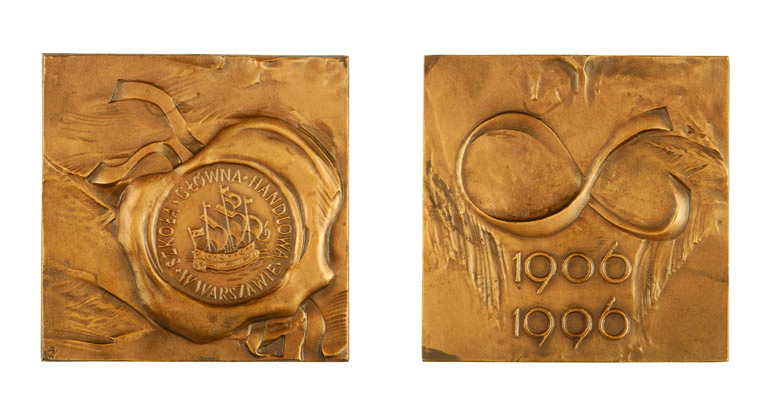
A medal to honour the 90th anniversary of SGH (front and back). A photo from SGH Archive
The 100th anniversary of the university was celebrated truly ceremoniously as Building C (deliberate designation with the letter C in accordance with the Roman system of writing numbers) was opened on this occasion on 7 October 2006. For this anniversary, the National Bank of Poland issued three commemorative coins: PLN 200 (gold), PLN 10 (silver) and PLN 2 (gold, Nordic Gold alloy). Prof. Leszek Balcerowicz, the President of the National Bank of Poland, handed them over to SGH Rector prof. Adam Budnikowski during academic year inauguration of 13 October 2006. The ceremony was attended by guests – José Manuel Durão Barroso, the President of the European Commission, and His Eminence Cardinal Józef Glemp, the Primate of Poland. To commemorate the anniversary, two plaques were also unveiled in Building A – the first to commemorate the 100th anniversary of SGH Warsaw School of Economics and the second to the memory of the school's graduates and students killed in the battles for Polish independence from 1914 to 1920. The celebrations culminated with the 10th Jubilee Reunion of SGPiS/SGH Alumni, held on 21 October 2006.
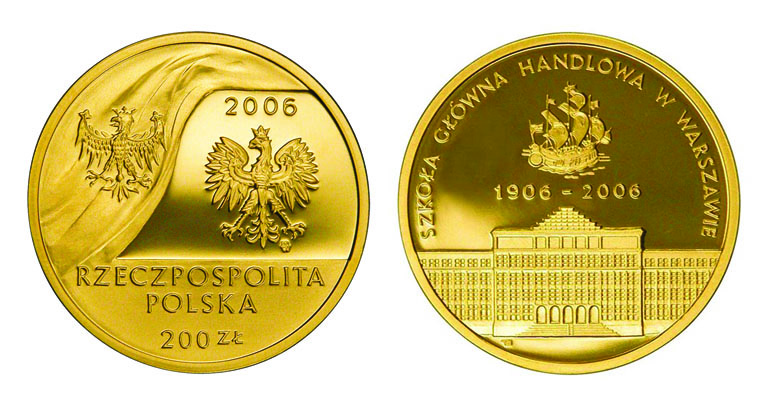
A commemorative gold coin of PLN 200 (front and back). A photo from SGH Archive
Among our regular celebrations is the SGH Celebration Day. It was established to commemorate the history of the school and it aims to integrate the community and promote the university. To mark SGH Celebration Day, during a ceremonial meeting of the SGH Senate, post-doctoral and doctoral diplomas are presented, as well as state and ministerial decorations. Some celebration days were particular as prominent scholars and politicians were awarded honorary doctoral degrees – throughout the years of the university's activity, the Senate conferred this honourable degree on thirty scholars and politicians from various countries. The first SGH Celebration Day took place on 13 April 1994 (on that day, the ceremony of awarding honorary doctorate degrees to Professors Jan Drewnowski and Leonid Hurwicz was held). Pursuant to a resolution of the SGH Senate, the Celebration Day is movable, i.e., it falls annually on the second Wednesday following Easter. That SGH Celebration Day is observed in April is associated with the date of 2 April1925, when the first Senate meeting in the school's history was held.
A good economic education allowed a large group of SGH graduates to reach the highest positions in Polish politics and the economy. The school graduates have been prime ministers, speakers of the Sejm, ministers, ambassadors of our country, and many have become presidents of banks and large companies. That is why it is of utmost importance to forge and enjoy permanent relations with SGH graduates. Such is the role of the Career and Alumni Centre and the Alumni Club that has been active for many years. The tradition of alumni relationship with the university dates back to 1912, when the Circle of Former Alumni of August Zieliński Higher Courses in Commerce was established, and to 1926, when the WSH Alumni Association was established. Since 1991, Foreign Trade Corporation (Korporacja HZ) has been active. It is an association of alumni of the Faculty of Foreign Trade at SGPiS/SGH, which existed from the late 1940s to the mid-1990s, i.e., until it was abolished as part of the university's reorganisation. With the 25th anniversary of Korporacja HZ, the First World Reunion of Alumni of the Faculty of Foreign Trade was held on 22 October 2016.
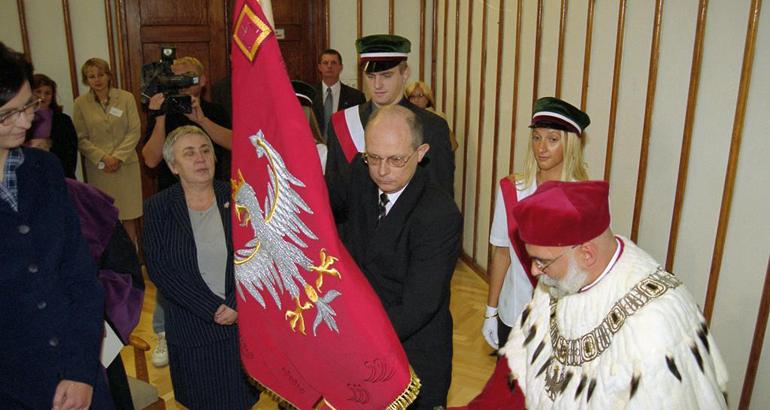
Inauguration of the academic year of 2002/2003 Marek Borowski, the Chairman of the Flag Honorary Committee, hands over a new flag to SGH Rector prof. Marek Rocki. Prof. Janina Jóźwiak, SGH Rector from 1993 to 1999, standing nearby.
Alumni reunions are a special form of alumni-university contact. Over the 115 years of the university's existence, eleven such reunions were held. The first reunion was held in October 1921, and the eleventh, in September 2016. (It was the culmination of the celebration of 110 years of uninterrupted activities of SGH). In addition to these meetings, an Alumni Reunion of the City School of Commerce was held in 1991, and, on 12 October 1994, a Friendly Reunion of Former Students of SGH Academic Courses in Częstochowa which were launched after the Warsaw Uprising in late 1944.
The university nurtures good relations not only with its graduates, but also with the business environment which is formed by the SGH Corporate Partners Club. The club was established in 1998 as a joint initiative of both Polish and international companies and the authorities of SGH Warsaw School of Economics. The SGH Corporate Partners Club includes thirty-three institutions and companies of various business profiles.
For many years, employees and students have always been informed about the most important events at the university. In May 1993, the Magazine of SGH Warsaw School of Economics was first published. For almost thirty years now, it has been a barometer of school life. It would be hardly imaginable for us to live our daily lives at SGH without it. Students also have their own magazine – in December 1995, "Magiel," a magazine on student life, was first published.
Under a new law, the Law on Higher Education and Science, major changes in the structure and organisation of the university took place as of 1 October 2019. On 29 May 2019, the SGH Senate adopted the university's new statute, and on 15 July 2019, the first meeting of the SGH University Board (a new body of SGH Warsaw School of Economics, established under the aforementioned law) was held.
Our university is a place where scientific research is carried out and where, above all, students, the very young and the slightly older ones, are educated. In 2000, the Warsaw School of Economics’ Secondary School was established (since 2006 it has been active as part of the Foundation for the Promotion and Accreditation of Economic Education). In 2006, the University of the Third Age was inaugurated, and the classes offered are very popular with seniors. In an effort to educate the youngest and develop their passion for economics, the Young Economist Academy and the Children's University of Economics were launched in 2008.
1906–1908 – August Zieliński’s Private Courses of Commerce for Men
1908–1915 – August Zieliński's Higher Commerce Courses
1915–1933 – Higher School of Commerce in Warsaw
1933–1940 – Warsaw School of Economics
1940–1941 – Economic Courses
1941–1942 – Municipal School of Economics
1942–1943 – Municipal School of Economics of II degree
1943–1944 – Municipal Courses of Commerce
1944–1945 – Academic Courses in Częstochowa
1945–1949 – Warsaw School of Economics
1949–1991 – Central School of Planning and Statistics in Warsaw
od 1991 – SGH Warsaw School of Economics
On 28 April 2021, the Senate of SGH Warsaw School of Economics adopted a Resolution on the Development Strategy of SGH Warsaw School of Economics for 2022-2032. The strategy sets out a framework of priorities for the entire university (its key areas of activity), as well as the collegia and administrative units.
Our university holds the highest accreditations, the special ones being the institutional accreditation of EQUIS (European Quality Improvement System), which is the leading international system for assessing the quality of education and study conditions in business schools, and the accreditation of the Association of Masters in Business Administration (AMBA), which confirms the highest quality of educational services among MBA programmes.
SGH Warsaw School of Economics participates in the Economic Forum in Krynica-Zdrój/Karpacz, and has been its main knowledge partner since 2020.
SGH Warsaw School of Economics is very highly rated. In 2021, University Ranking of “Perspektywy” monthly, it came first again, in the category of “Business Schools.”
The expansion of the SGH campus is also an important project. In September 2021, SGH Warsaw School of Economics and ERBUD GROUP signed a contract for the construction of a new SGH building for teaching purposes at 8 Batory Street in Warsaw.
The spring of 2019, when the COVID-19 pandemic necessitated the decision to study remotely, was a period of great challenges for the organisation of the studying process. For SGH, however, the last two years have been a time of rapidly achieving digital proficiency on many levels – teaching, administrative and cultural, and the implementation of the system for handling the teaching process and the work of deans' offices (USOS) has allowed a leap in quality towards into e-administration.
For 115 years, each consecutive year has brought new challenges SGH has always been successfully facing. A great deal of credit goes to the university authorities. Since the early 1990s, the following professors have been the rectors of our university: Aleksander Müller (1990–1993), Janina Jóźwiak (1993–1999), Marek Rocki (1999–2005), Adam Budnikowski (2005–2012), Tomasz Szapiro (2012–2016), Marek Rocki (2016–2020). On 15 April 2020, prof. Piotr Wachowiak was elected rector for the period of 2020-2024.
dr BARBARA TRZCIŃSKA, Department of Economic Geography, Collegium of Business Administration, SGH

